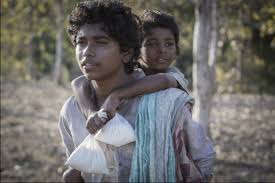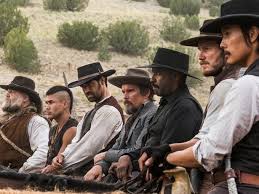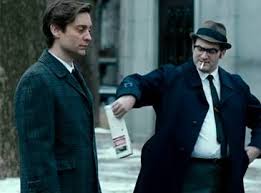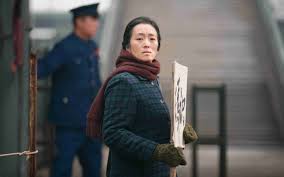REMEMBRANCE OF THINGS PAST: Movie Reviews of Lion and Jackie by Howard Casner
Posted: December 18, 2016 | Author: Donald | Filed under: Uncategorized | Tags: Beth Grant, Billy Cruddup, Dev Patel, Garth David, Greta Gerwig, Jackie, John Carroll Lynch, John Hurt, Lion, Luke Davies, Natalie Portman, Nicole Kidman, Noah Oppenheim, Pablo Lorrain, Peter Sarsgaard, Richard E. Grant | Leave a comment »For questions: hcasner@aol.com
First, a word from our sponsors: I wanted to say thank you to everyone who contributed to our Indiegogo campaign for 15 Conversations in 10 Minutes. We did very well due to you folks. For those who weren’t able to give, keep us in your thoughts. And if you are able to contribute in the future, contact me and I’ll tell you how. I will even honor the perks on the original campaign.
I am now offering a new consultation service: so much emphasis has been given lately to the importance of the opening of your screenplay, I now offer coverage for the first twenty pages at the cost of $20.00. For those who don’t want to have full coverage on their screenplay at this time, but want to know how well their script is working with the opening pages, this is perfect for you. I’ll help you not lose the reader on page one.
Ever wonder what a reader for a contest or agency thinks when he reads your screenplay? FosCheck out my new e-book published on Amazon: Rantings and Ravings of a Screenplay Reader, including my series of essays, What I Learned Reading for Contests This Year, and my film reviews of 2013. Only $2.99. http://ow.ly/xN31r
and check out my Script Consultation Services: http://ow.ly/HPxKE
Warning: SPOILERS
 About a third of the way through Lion, the new film from director Garth David (he worked on the TV series Top of the Lake) and screenwriter Luke Davies (Candy), the central character, Saroo, has a Proustian moment when he sees a plate of jelebies, a lusciously bright red sweet popular in India. He suddenly has a memory of being a boy less than six years old, deeply desiring such a confection while out working with his older brother in a remote Indian city.
About a third of the way through Lion, the new film from director Garth David (he worked on the TV series Top of the Lake) and screenwriter Luke Davies (Candy), the central character, Saroo, has a Proustian moment when he sees a plate of jelebies, a lusciously bright red sweet popular in India. He suddenly has a memory of being a boy less than six years old, deeply desiring such a confection while out working with his older brother in a remote Indian city.
This has a profound effect on him, because as a child he got separated from his brother and ended up on a train that took him to New Delhi where he ended up in an orphanage, subsequently adopted by an Australian couple.
He hasn’t thought about his early life much at all. He doesn’t even really consider himself Indian. But the rush of memory has a profound existential effect on him and he becomes obsessed with finding his way back to his birth mother and family. Read the rest of this entry »
IT’S A DISASTER: Movie Reviews of The Magnificent Seven and Deepwater Horizon by Howard Casner
Posted: October 4, 2016 | Author: Donald | Filed under: Uncategorized | Tags: Akira Kurosawa, Antoine Fuqua, Battle Beyond The Stars, Byung-hun Lee, Chris Pratt, Colby Parker, Deepwater Horizon, Ethan Hawke, Gabriel Fleming, John Malcovich, Jr., Kurt Russell, Manuel Garcia-Rulfo, Mark Wahlberg, Martin Sensmeier, Matthew Michael Carnahan, Matthew Sand, Nic Pizzolatto, Peter Berg, Peter Sarsgaard, Richard Wenk, Steve Jablonsky, The Magnificent Seven, The Seven Samurai, Vincent D’Onofrio, Washington | 4 Comments »For questions: hcasner@aol.com
First, a word from our sponsors: I wanted to say thank you to everyone who contributed to our Indiegogo campaign for 15 Conversations in 10 Minutes. We did very well due to you folks. For those who weren’t able to give, keep us in your thoughts. And if you are able to contribute in the future, contact me and I’ll tell you how. I will even honor the perks on the original campaign.
I am now offering a new consultation service: so much emphasis has been given lately to the importance of the opening of your screenplay, I now offer coverage for the first twenty pages at the cost of $20.00. For those who don’t want to have full coverage on their screenplay at this time, but want to know how well their script is working with the opening pages, this is perfect for you. I’ll help you not lose the reader on page one.
Ever wonder what a reader for a contest or agency thinks when he reads your screenplay? FosCheck out my new e-book published on Amazon: Rantings and Ravings of a Screenplay Reader, including my series of essays, What I Learned Reading for Contests This Year, and my film reviews of 2013. Only $2.99. http://ow.ly/xN31r
and check out my Script Consultation Services: http://ow.ly/HPxKE
Warning: SPOILERS
 Two films have opened as of late which have disaster in common. One falls into that genre and one almost is one.
Two films have opened as of late which have disaster in common. One falls into that genre and one almost is one.
There is one transcendent moment in the most recent version of The Magnificent Seven. It comes at the end as the credits begin by showing each of the characters. At this point, behind them, one can here the incredibly epic score by Elmer Bernstein from the 1960 version. It’s stirring, splendid, glorious, stunning…
Unfortunately, this tiny fraction of the movie only really ended up serving one purpose: it clearly reminded the audience of the earlier version, and not to the benefit of the present one, and only went to show how bland and uninteresting the music is when it comes to James Horner and Simon Franklin’s score for this Western remake of a remake (yes, it apparently took two people to come up with something so dull). Read the rest of this entry »
THE GAMES PEOPLE PLAY: Movie Reviews of Pawn Sacrifice and The New Girl Friend by Howard Casner
Posted: October 6, 2015 | Author: Donald | Filed under: Uncategorized | Tags: Anaius Demoustier, Bobby Fischer, Boris Spassky, Edward Zwick, François Ozon, Isild Le Besco, Liev Schreiber, Michael Stuhlberg, Pawn Sacrifice, Peter Sarsgaard, Raphaȅl Personnaz, Romain Duras, Ruth Rendall, Steven Knight, The New Girlfriend, Tobey Maguire | 2 Comments »First, a word from our sponsors: I am now offering a new service: so much emphasis has been given lately to the importance of the opening of your screenplay, I now offer coverage for the first twenty pages at the cost of $20.00. For those who don’t want to have full coverage on their screenplay at this time, but want to know how well their script is working with the opening pages, this is perfect for you. I’ll help you not lose the reader on page one.
Ever wonder what a reader for a contest or agency thinks when he reads your screenplay? Check out my new e-book published on Amazon: Rantings and Ravings of a Screenplay Reader, including my series of essays, What I Learned Reading for Contests This Year, and my film reviews of 2013. Only $2.99. http://ow.ly/xN31r
and check out my Script Consultation Services: http://ow.ly/HPxKE
Warning: SPOILERS
 I do remember, somewhat vaguely it must be admitted, when the notorious and neurotic (to be polite) Bobby Fischer played Russian behemoth Boris Spassky for the world Grand Master of Chess back in 1972.
I do remember, somewhat vaguely it must be admitted, when the notorious and neurotic (to be polite) Bobby Fischer played Russian behemoth Boris Spassky for the world Grand Master of Chess back in 1972.
The portrait that was being painted of Fischer by many in the media at the time was of someone who was acting outrageously, unreasonably and very, very strangely in order to out-psyche his blindsided opponent. In other words, everyone thought there was a method to Fischer’s madness.
But writer Steven Knight and director Edward Zwick, in their version of the match in their new film Pawn Sacrifice, take a different approach. In their perspective, Fischer came by his outrageousness honestly. According to Knight and Zwick, Fischer’s actions were the result of some pretty serious mental issues rather than fully conscious choices.
In other words, while everyone, including Spassky, thought that Fischer was playing Hamlet, in reality, he’s the guy in the hospital who thinks he really is Hamlet.
And they make a pretty good case for it. Read the rest of this entry »
FUHGEDDABOUDIT: Movie Reviews of Coming Home and Black Mass by Howard Casner
Posted: September 27, 2015 | Author: Donald | Filed under: Uncategorized | Tags: Adam Scott, Benedict Cumberbatch, Black Mass, Coming Home, Corey Stoll, David Harbour, Huiwen Zhang, Jesse Plemons, Jez Butterworth, Jingzhi Zou, Joel Edgerton, John Connolly, Johnny Depp, Kevin Bacon, Li Gong, Mark Mallouk, Peter Sarsgaard, Random Harvest, Rory Cochrane, Scott Cooper, W. Earl Brown, Whitey Bulger, Yanshi (Daoming Chen, Yimou Zhang | 3 Comments »First, a word from our sponsors: I am now offering a new service: so much emphasis has been given lately to the importance of the opening of your screenplay, I now offer coverage for the first twenty pages at the cost of $20.00. For those who don’t want to have full coverage on their screenplay at this time, but want to know how well their script is working with the opening pages, this is perfect for you. I’ll help you not lose the reader on page one.
Ever wonder what a reader for a contest or agency thinks when he reads your screenplay? Check out my new e-book published on Amazon: Rantings and Ravings of a Screenplay Reader, including my series of essays, What I Learned Reading for Contests This Year, and my film reviews of 2013. Only $2.99. http://ow.ly/xN31r
and check out my Script Consultation Services: http://ow.ly/HPxKE
Warning: SPOILERS
In 1942, Ronald Colman played a character so shell shocked by the trenches of World War I that he walked out of the hospital where he was recovering, having no idea who he was.
He was taken in by a singer in a vaudeville house (Greer Garson), fell in love and the two married. Then years later, he suddenly, out of nowhere, remembered who he really was, but totally forget that his wife existed. He discovers he’s the scion of a wealthy family and eventually runs for political office, not knowing that his secretary is actually his wife.
This movie is Random Harvest and is perhaps the most romantic and delirious use of amnesia in film. But amnesia has always been a useful tool of storytelling, whether romantic (here and in Law of Desire) or in thrillers (Mr. Budwing and Mirage) or comedy (The Hangover and 50 First Dates).
 Coming Home, written by Jingzhi Zou and directed by Yimou Zhang, falls into the more melodramatic end of the spectrum like Random Harvest. It’s unabashedly sentimental and relishes in a sort of 1930’s studio romanticism tone and style, though the grittiness makes it more Warner Brothers than MGM. Read the rest of this entry »
Coming Home, written by Jingzhi Zou and directed by Yimou Zhang, falls into the more melodramatic end of the spectrum like Random Harvest. It’s unabashedly sentimental and relishes in a sort of 1930’s studio romanticism tone and style, though the grittiness makes it more Warner Brothers than MGM. Read the rest of this entry »
WHERE’S THE REST OF ME: Movie Reviews of the The Signal and Night Moves by Howard Casner
Posted: June 22, 2014 | Author: Donald | Filed under: Uncategorized | Tags: Beau Knapp, Brenton Thwaites, Carlyle Eubank, Dakota Fanning, David Frigerio, James Le Gros, Jesse Eisenberg, Jonathan Raymond, Kelly Reichardt, Laurence Fishburne, Matt Malloy, Night Moves, Olivia Cooke, Peter Sarsgaard, The Signal, William Eubank | 2 Comments »First, a word from our sponsors. Ever wonder what a reader for a contest or agency thinks when he reads your screenplay? Check out my new e-book published on Amazon: Rantings and Ravings of a Screenplay Reader, including my series of essays, What I Learned Reading for Contests This Year, and my film reviews of 2013. Only $2.99. http://ow.ly/xN31r
Warning: SPOILERS
 Two movies have opened that seem to have never heard of the rule that today your screenplay must begin with a grabber scene, it simply has to. You know, something that happens in the first ten pages that attacks the face and thrusts its whatever it was down your throat like that creature in Alien?
Two movies have opened that seem to have never heard of the rule that today your screenplay must begin with a grabber scene, it simply has to. You know, something that happens in the first ten pages that attacks the face and thrusts its whatever it was down your throat like that creature in Alien?
Instead the filmmakers seem to feel that the slow build, the taking the time to create context for the characters and the situation, the use of an approach that invites us along for the ride rather than assaults us, is the more effective way to go. Wow, what a concept. Read the rest of this entry »
Movie Reviews of FRUITVALE STATION, THE WAY, WAY BACK and BLUE JASMINE by Howard Casner
Posted: August 8, 2013 | Author: Donald | Filed under: Uncategorized | Tags: Alec Baldwin, Allison Janney, Andrew Dice Clay, Blue Jasmine, Cate Blanchette, Fruitvale Station, Jim Rash, Liam James, Maya Rudolph, Michael B. Jordan, Nat Faxon, Peter Sarsgaard, Ryan Cooglar, Sally Hawkins, Sam Rockwell, Steve Carrell, The Way, Toni Collette, Way Back, Woody Allen | 2 Comments »The movie Fruitvale Station has a horrific finale, a fevered, shaking camera dramatization of a terrible, tragic incident. It’s also the main reason to see the film. It’s a disturbing, chaotic and frustrating set of scenes and makes you very angry. So if nothing else, the movie has certainly achieved something here. At the same time, as a whole, the movie never really connected with me. The rest of the film is a chronicle of the events, a day in the life of type thing, of the central character, Oscar Grant, a young man with a difficult background spending his last day on earth without knowing his time is running out.
How you feel about the film will probably depend upon how you feel about this character. Oscar (played sincerely and solidly by Michael B. Jordan) is a petty drug dealer who has been in and out of prison. He’s also a compulsive liar; a player; has anger management issues; and refuses to take any responsibility for how his life has turned out. He’s the sort of guy who tells his girlfriend and mother of his child that that last affair he recently had, you know the one, well, hey, now, babe, that meant nothing and it’s over and I’m a new guy now; then in the next scene, he’s flirting with a young woman at the store he once worked at. He’s also the kind of guy who threatens his ex-box with bodily harm if he won’t give him his job back, the job he lost from constantly showing up late (at another time, he threatens to urinate on a poor store owner’s entranceway if he won’t let some friends of his use the store bathroom—you see a pattern here).
After all that, he should be fascinating. He’s the sort of character that I go to movies to see. But Oscar isn’t. In fact, he’s sort of familiar and the kind of character we’ve seen many times in movies before. There’s nothing that particularly unique or vibrant about him. He’s even a bit bland, when all is said and done. Hard to believe when one reads the description above, but that was pretty much it for me.
I think because of this, once the emotional effect of the horrific incident at Fruitvale Station wore off, I thought: okay, it was a terrible event, but I’m still not sure why the writer/director Ryan Cooglar made the movie. The tragedy at the end is not presented in a way that is a commentary on Oscar’s life, though one gets the feeling that Cooglar wants it to be in some way. Instead, it’s unclear Cooglar offers any real insight to the situation or has anything to say about it other than, well, than “shit happens”. Which, actually, is a perfectly fine theme; it’s just unclear that this was Cooglar’s intention.
I do highly recommend a film with a similar situation, The Murder of Stephen Lawrence, written and directed by Paul Greenglass, also a true story about a black teenager who was shot and killed by police officers for unclear reasons; this time in England. It’s a tension filled story that grabs you from the beginning and refuses to let go. Fruitvale Station felt a bit too leisurely to me.
Over the past couple of years, two genres of film seem to have dominated the silver screen: the coming of age film (from Moonlight Kingdom to The Perks of Being a Wildflower to The Kings of Summer to The Bling Ring to The To Do List) and the film apocalypse (from It’s a Disaster to This is the End to The World’s End to World War Z to almost any movie based on a super hero). I’m not sure what this means. I can’t say that it’s a particularly optimistic view of the world to say that just when one takes the first steps toward being an adult you’re shit out of luck because the world’s about to bite you in the ass big time.
The latest foray into the coming of age category is The Way, Way Back, a story about a teen, Duncan (played satisfactorily by Liam James), having to spend a couple of weeks at a beach house with his mother Pam and her new boyfriend Trent, who treats Duncan like a cockroach to be stomped on. While The Kings of Summer is a more ambitious film, The Way, Way Back is actually more satisfying if for no other reason that while the kids in the former film are nothing but spoiled brats who don’t know when they are well off, the hero in the latter film is in a near nightmarish situation in which he is more sinned against that sinning.
But like many films in this popular genre, The Way, Way Back is fun and entertaining and even moving at times, while not really bringing anything new to the table and it all feels rather formulaic. What it does have is some very nice acting, especially from Sam Rockwell in the Bill Murray role, as Owen, the manager of a swimming park who takes pity on the depressed Duncan and becomes the true father figure that Trent (Steve Carrell, giving it his all, while at the same time, never seeming comfortable in the roll and always looking miscast) could never be. Giving more than able support is Toni Collette as the scared and desperate Pam; Allison Janney, hysterical as Betty, the alcoholic in the making next door neighbor; and Maya Rudolph as Owen’s long suffering co-worker.
Perhaps the most original and intriguing aspect of the screenplay (by Nat Faxon and Jim Rash, who also directed) is the character of Betty. In many ways, she treats her kids in the same inexcusably awful manner as Trent treats the kids under his roof. But while Trent leaves you with the feeling that he’s one degree off from becoming Ted Bundy, it’s obvious that Betty and her kids all love each other very much. It’s a clever juxtaposition.
But in the end, does it really matter? The way things are going in the movies these days, all the characters are going to die in a couple of years anyway.
Blue Jasmine is a character study of a faded Northern bell. Any resemblance to A Streetcar Named Desire is purely unintentional, I’m sure (and I have the deed to the Brooklyn Bridge in my pocket). But though written and directed by the great Woody Allen, it feels like a screenplay written by someone who had no emotional attachment to anyone in the film or anything that is going on in it as well. And when it’s all over, you go: fair enough, but exactly why was it made?
It stars Cate Blanchette as Jasmine, a woman married to a Bernie Madoff type (Alec Baldwin) who loses all her upper class trappings when her husband is arrested and the IRS and the court take everything she owns. She moves to San Francisco to live with her sister Ginger, someone she feels too superior to to really want to have anything to do with (Sally Hawkins). The story is told in a rather clunky manner with tons of expository dialog and some distracting side trips (mainly dealing with the Ginger’s love life) that just get in the way of Jasmine’s central through line.
The plot is often not that believable; Jasmine takes a computer course for some reason that never made sense—she claims to be computer illiterate, but no one in her social background is this obtuse. She also has a romance with a politician on the rise (Peter Sarsgaard), someone who works for the State Department yet still has enough money to buy a second home only Donald Trump could afford (okay, I’m exaggerating, but you get my drift). This subplot is so questionable that one is expecting Sarsgaard’s character to turn out to be a con man of some sort with the intent of Jasmine getting a taste of her own medicine; but no, he is exactly what he seems. And that’s without mentioning a surprise ending that only poses more questions than it answers.
On the plus side, this is a movie that is cast within an inch of its life. Everyone is excellent and some, like Hawkins and Blanchett, are brilliant. Perhaps most surprising Is Andrew Dice Clay who is spot on as Hawkins’ working class ex-husband (who knew that Clay could actually have had an acting career if he hadn’t been such a jerk). But in many ways, that is almost all Blue Jasmine has. Whether that is enough, is up to you.











